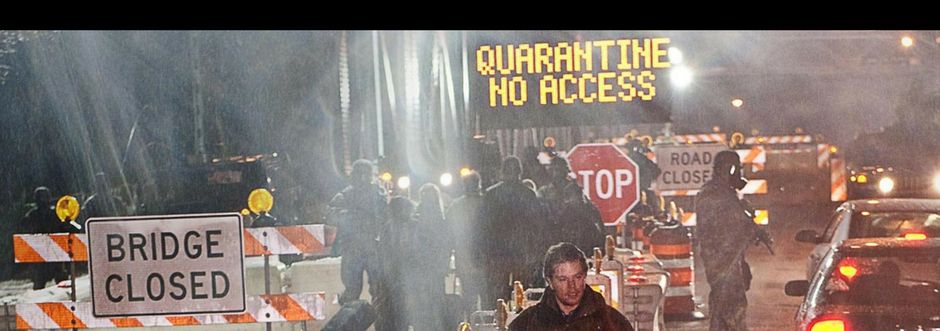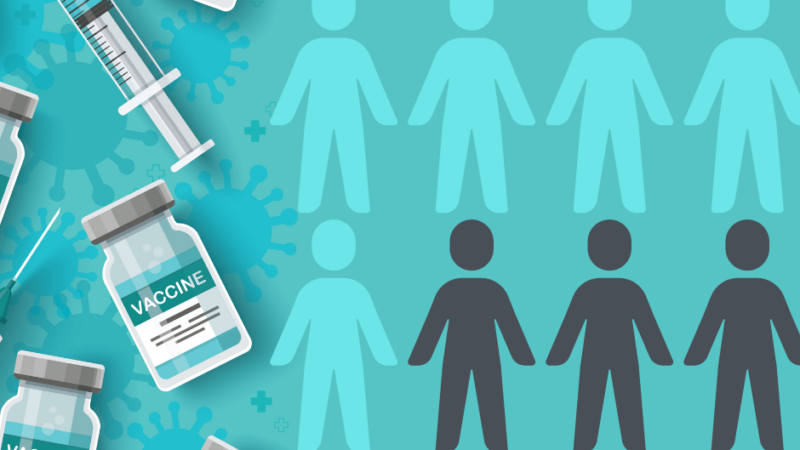CDC GRANTS ITSELF MORE POWER to aprehend, detain, force treatment with 2017 QUARANTINE RULES

Last Fall Health Freedom Idaho called upon everyone to comment on the new proposed rule created by the CDC to GIVE the CDC more power and control in the process for apprehending and identifying people with contagious diseases, and the issuance of federal orders for quarantine, isolation, and conditional release were closely questioned by many of those who responded to the proposed rules. The rule becomes effective this month.
Listen to Idaho Public Radio and their discussion
How Will the New CDC Rules for Quarantine and Isolation Affect You?
There are new U.S. government rules that can force travelers into quarantine or isolation if they are suspected of having a contagious disease. The Centers for Disease Control and Prevention (CDC) published their revised rules explaining how they will intervene to protect the public from the spread of quarantinable communicable diseases such as Ebola.
For those of us who prefer to minimize our contact with the conventional medical care system and its pharmaceutical products, these new rules should cause us to carefully consider our health status when traveling across state lines or traveling back to the United States during a CDC health emergency. If we have symptoms of illness that might be confused with a communicable disease, then it might be wise to carefully consider our travel plans.
The rules were released on the last day of the Obama Administration, 1/19/2017, and will take effect on February 21, 2017.
The 4 problems with the CDC Rule: <From HealthAffairs.Org >
1. First, the proposed regulation permits indefinite detention without the issuance of a formal public health order and with absolutely no due process protections.
Though the CDC has noted that it “does not expect that the typical public health apprehension will last longer than 72 hours,” the proposed regulations place no limit on how long officials may detain an individual while deciding whether to formally quarantine or isolate her.
That means that a future administration could hold travelers—either returning from abroad at the airport or traveling across state lines—in government custody for days or weeks without providing an explanation or an opportunity for the individuals to challenge their detentions. The CDC must constrain this power by placing an upper limit of hours—not days—on the period under which government officials may detain an individual without serving a written order of quarantine or isolation. This reform is required by the Constitution and is sound policy, given that the threat of indefinite apprehension will serve as an impediment to recruiting volunteer health care workers.
2. Second, the proposed regulation fails to clearly state that the federal government will not issue public health orders that restrict individuals’ liberty unless these orders are necessary and there are no less restrictive ways to protect public health.
For example, during the last Ebola outbreak some states monitored the health of travelers returning from West Africa through daily check-ins by phone with a public health official, which is less restrictive than quarantine and proved just as effective. The Constitution prohibits the government from placing more onerous restrictions on individual liberties than is necessary—as determined by sound scientific evidence—to protect the public from the threat of disease.
3. Third, the proposed regulation fails to guarantee quarantined individuals speedy access to courts, which provide an important check on the misuse of government power by ensuring that the government makes an adequate showing of scientific necessity.
Currently, the proposed regulations would allow a future administration to quarantine an individual for three days without providing any legal or medical justification for the quarantine before a neutral decision maker. Yet under the Constitution, absent emergency circumstances, the federal government must provide an individual with legal notice and an opportunity to be heard at a hearing before the government restricts the individual’s liberty. In emergency situations, the government must hold this hearing before a neutral decision maker within 72 hours of initiating the quarantine.
4. Fourth, the proposed regulations would allow a future administration to perform any ‘medical examination’—no matter how invasive—without the individual’s consent, so long as the testing is “reasonably necessary to diagnose or confirm the presence or extent of infection.”
In fact, nowhere in the text of the proposed regulations does the CDC address issues of consent. Informed consent is a fundamental principle of medical ethics that should not be violated absent extraordinary circumstances in which no other alternative exists. Because placing an individual in isolated detention will always provide an alternative to a non-consensual, invasive medical examination, we can imagine no situation in which the CDC would be ethically (or legally) warranted in conducting a medical examination against an individual’s will.
To prevent a future administration from violating the bodily integrity and autonomy of citizens through forced examinations, the CDC must explicitly require informed consent for all medical examinations and treatment, with the option of voluntary isolation in lieu of such procedures.






